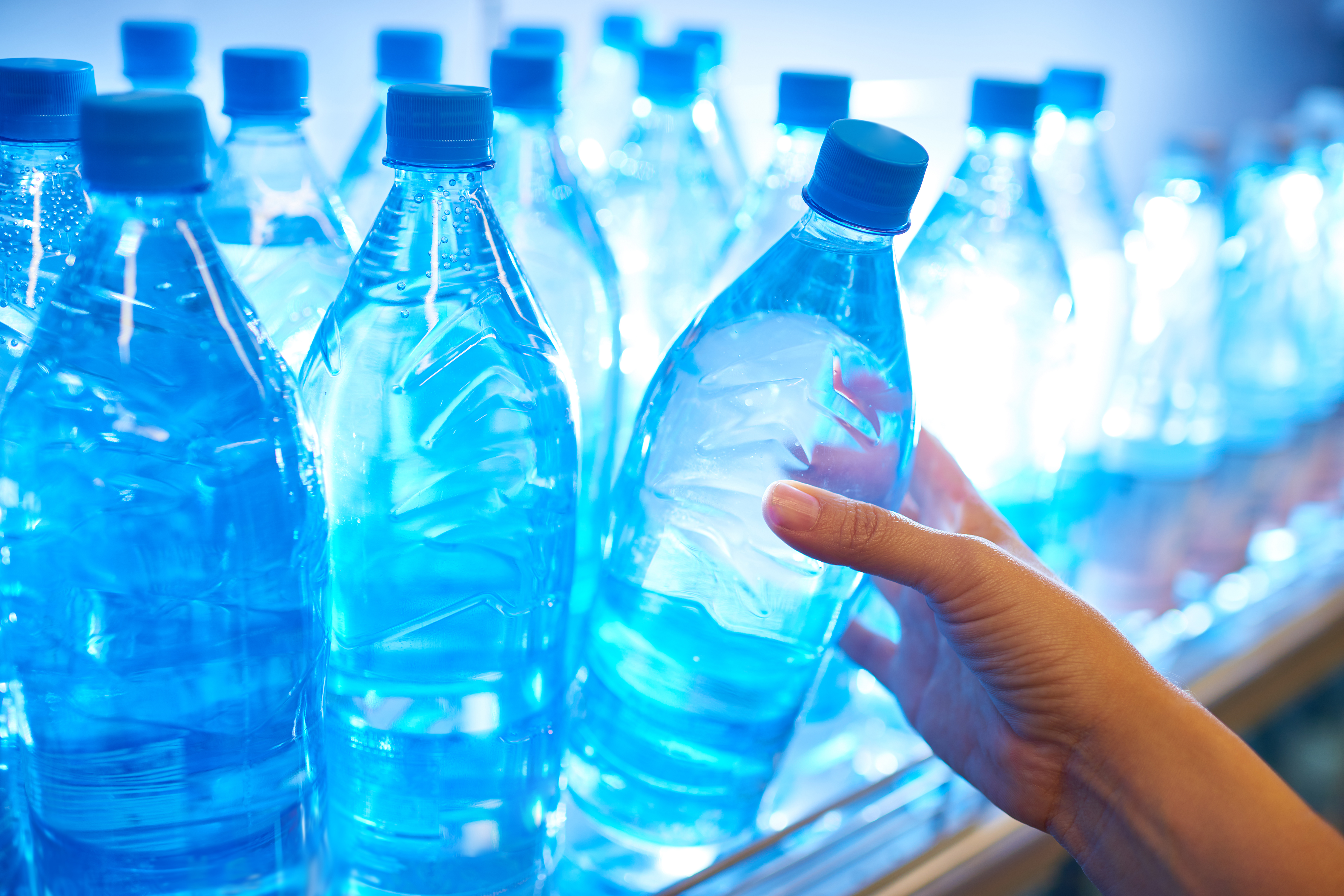With consumption of bottled water now outpacing carbonated soft drinks, a new study by UConn researchers shows college students buy bottled water based on marketing promotional messages that can be misleading about the quality of bottled water compared to tap water.
The study, published in the journal Communication Research Reports by communication doctoral student Xiaowen Xu, the principal researcher, and Carolyn A. Lin, professor of communication, reviewed prior research about planned behavior, peer influences, the benefits of drinking bottled water, and purchase intentions, and found through additional research that all of those factors are significantly related to the decision of college students to buy bottled water.
“We did a quantitative study and a focus group to see how people formed these ideas about bottled water,” says Xu. “It was from advertising, marketing materials, and other information sources. Usually advertisers package the product as pure or from natural sources. They package it like an energy or athletic product, so all those things would contribute to how students look at it. Through all of our research, we find most of the misconceptions actually come from advertisements and other promotional material.”
The researchers say common misperceptions about bottled water products such as health benefits are reflective of “a lack of objective or science-based knowledge” that can lead to drinking more bottled water. They also note that since 2004, studies by the Pacific Institute have demonstrated single-use water bottles are a major pollutant in the environment.
“This is the first generation raised on bottled drinks,” says Lin. “It doesn’t matter what it is, like juice boxes, so they’re very accustomed to the idea. Fundamentally people are used to purchasing convenience products and looking to save money, if they can. They’re so accustomed to doing these things, it’s habitual behavior. They don’t stop to think about it.”
Lin notes that most people are not aware how the bottled water industry packages tap water that’s filtered, which also can be achieved by using water filters at home.
Xu and Lin also tested factors that would motivate students to buy bottled water in the future. They found that a key factor is convenience.
“It’s just easy for them to grab bottled water from a store on campus,” Xu says. “They’re generally aware of the environmental impact, but on the other hand it’s just convenient to get the bottled water. They don’t know the extent of that impact about bottled water. They think it’s just easier for them, it’s healthy, and it tastes good. All these different perceptions would come together in their final decision. Knowledge is only one small piece of that. I think that is an interesting finding from our results.”
The researchers say that because bottled water purchase is largely associated with perceptions about its benefits compared with the undervalued benefits of filtered tap water, based on what they describe as a “relentless marketing onslaught,” strategies could be developed aimed at communicating and establishing messages to reduce bottled water consumption.



